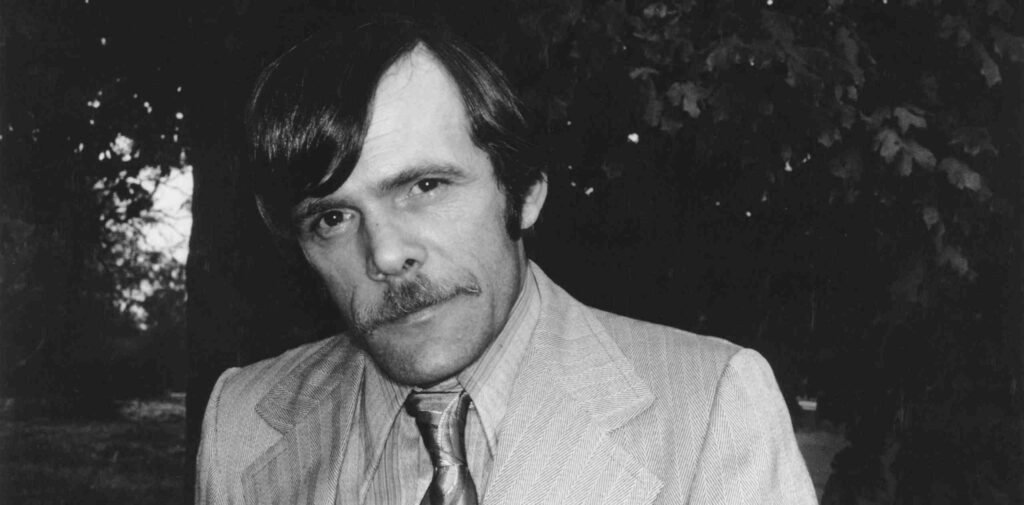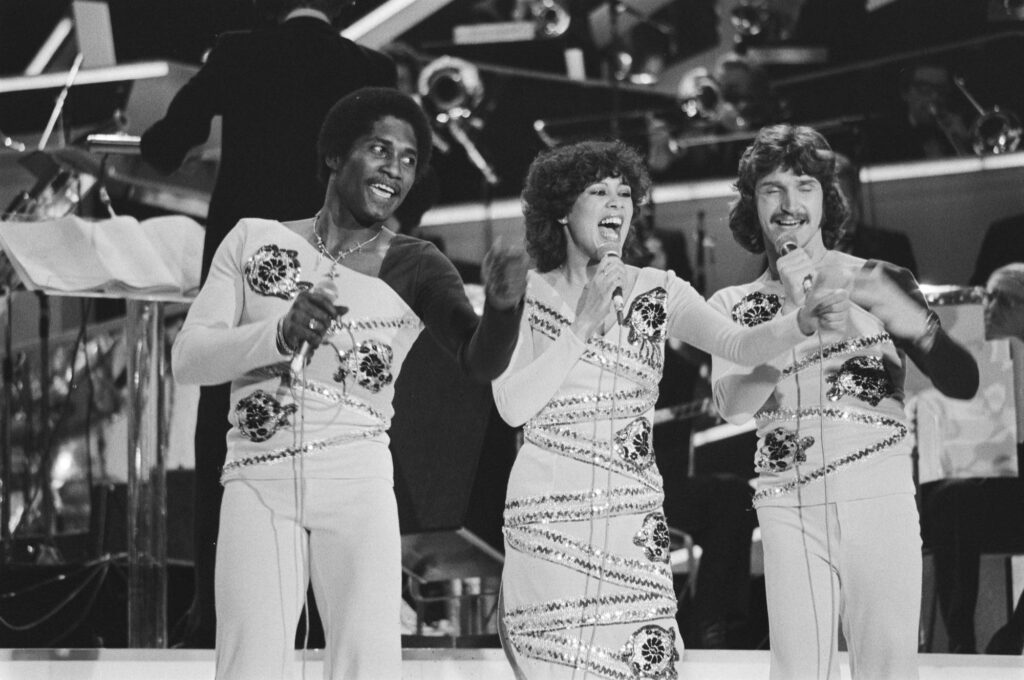Donald Eugene Lytle was born in Greenfield, Ohio on May 31, 1938. When he was six years old, his mother gave him his first guitar which he learned how to play. A few years later, he began performing at talent shows, but by the age of 15 he was ready to start playing professionally, dubbing himself “The Ohio Kid”.
Young
Donald quit school and joined the Navy, but his military career didn’t last long before he assaulted a fellow officer and then spent two years in a military prison before getting kicked out.
Returning to music, he moved to Nashville and began playing professionally, now calling himself “Donny Young”. He would play guitar and do background vocals. It was when he met George Jones that his career finally started to take a step forward. The two became fast friends as Jones all but mentored the talented musician.
Donny began working with other established country musicians who were seemingly eager to start working with what an ad for The Grand Ole Opry called “the nation’s newest singing sensation”.
Paycheck
In 1964, Donny Young changed his name (as far as the music was concerned) and began performing as “Johnny Paycheck”. This name, he chose, was an homage to Chciago-based professional boxer “Johnny Paycheck” and was never intended to be a slam at “Johny Cash” (who needs no introduction.)
After singing on to Little Darlin’ Records, he managed to record a few smash hits, such as “A-11” and “The Lovin’ Machine” and “jukebox Charlie”.
There was, however, something a little bit different about Johnny Paycheck’s music. Some found it raw, more so than other country artists at the time. Others called his music “experimental” by artistically borrowing from other various music styles.
Yet, the 1960s saw some of the best … and the worst of Johnny Paycheck. While many considered him a refreshing new talent that could help redefine what country music was at the time – his success also came at a price, namely a “party” mentality and addiction to heroin and alcohol.
When Little Darlin’ went under in 1970, it left Paycheck with nothing but a mixed reputation. Before he could bounce back, he found himself homeless and only able to book small dive bars for a quick buck.
Outlaw
In 1971, Paycheck was approached by Billy Sherrill, of Epic Records. Attached to this offer, however, was one big condition – Billy would only work with Johnny if he cleaned himself up, got off the drugs, and stopped abusing alcohol. It was, at least in theory, the kick that Paycheck needed to start trying to turn his life around.
Meanwhile, there’s a new wind blowing around country music. Up to this point, the Country Music scene had been cultivated into a certain sound by producers like Chet Atkins. But, now thanks to artists like Johnny Cash, Kris Kristofferson, Waylon Jennings, and others, a new sound was emerging. It still had its roots in the more traditional country music sounds, but now had heavier rockabilly, rock and roll, and folk sounds.
Even the lyrics were changing, becoming more introspective, focusing more on the blue-collar working class, the rural farmers, and certainly didn’t fit into the more wholesome image promoted by Nashville. Over the years, this new style of music had many names, such as “progressive country” or “redneck rock” but the name that seems to have stuck was “Outlaw Country”.
This seemed to fit on several levels. Most notably, they considered themselves outlaws from the Nashville Sound. But, also, they existed way outside the wholesome personalities that were being promoted at the time. Eventually this rebellious attitude would be absorbed into country music in general, but it had to come from somewhere.
As for Johnny, while he managed to clean up his image a little, at least in some perspectives, he managed to release his biggest hit yet, She’s All I Got, which peaked at No. 2 on the Billboard Country chart.
However, it was in 1977 that Johnny Paycheck fully embraced Outlaw Country that he finally managed to score his biggest hit, ever: Take This Job And Shove It. Seriously, the song was so popular that they just had to make a movie based on it, which promoted it even further. They even got Johnny Paycheck to appear in the film – he’s credited as “Man With Hamburgers”.
Success and Failure
Looking back at his entire life, it seems like there were two Johnny Paychecks (three if you count that boxer). One was the outlaw, the rebel, the rule breaker who had an affinity for not following the law. The drunkard, the heroin addict. Then there was the other Johnny – a down-home boy-next-door type, respectful and caring.
One day, Johnny Paycheck would be performing at a fundraiser in his hometown of Greenfield, Ohio, doing what he could to raise money for a cause he deeply believed in. The next day, he’d be arrested for shooting some guy at a bar in the next town over. (He spent 22 months in prison before Ohio Governor Richard Celeste pardoned him.
His bandmates would occasionally tell reporters that Johnny had a hard time dealing with his celebrity status. One deeply troubling incident involved a 12-year-old Wyoming girl that was a huge fan of his … who he slept with and was arrested for statutory rape. He was able to get his charges reduced, pleading no contest so that he could continue to tour with his band. The girl’s family took a major exception to this and filed a three-million-dollar civil suit against him, although this never went to trial.
With Johnny, it seemed like every step he took up, he’d soon take two steps down.
The End of Johnny
Johnny Paycheck passed away in Nashville, on February 19, 2003. According to his friends, he had been somewhat successful the past several years of putting his life back together again, but this easily could have also been due to health problems keeping him from touring or making new music.
He had battled emphysema and asthma for years, making singing long concerts (or spending hours recording new tunes) all but impossible.
Paycheck would be interred at Nashville’s Woodlawn Memorial Park, in a plot paid for by George Jones. In attendance were a range of people from what was essentially Nashville royalty, to groups such as The Hells’ Angels, which all but adopted his most famous song as an anthem.
Today, the people of Highland County, Ohio seem to remember Johnny Paycheck partly as a home-grown boy made good (and bad) … clearly wanting to praise his talent and his caring spirit but also trying to reckon with some of the bad things he’s done in his life.



